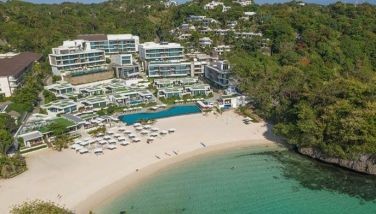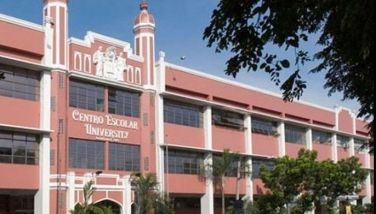Financial system has P900 billion for PPP
MANILA, Philippines - Financial executives and local businessmen believe that there is enough liquidity in the domestic market to bankroll major infrastructure projects under the public-private partnership (PPP) initiative of the Aquino administration.
According to officials of the Financial Executives Institute of the Philippines (Finex) and Trust Officers Association of the Philippines (TOAP), the financial system in the country has excess funds including the special depository accounts (SDAs) parked at the Bangko Sentral ng Pilipinas (BSP) that could be used to finance major infrastructure projects.
TOAP president Marvin Fausto said in an interview with reporters that there is an excess liquidity of as much as P900 billion just parked in the vault of the BSP through SDAs.
Fausto pointed out that investors are willing to channel their SDA accounts to more productive investments such as infrastructure development as long as the government provides the platform for such investments.
“We are just waiting for the lead from the government,” he stressed.
He explained that government does not have to look overseas for funds to finance PPP projects worth between P400 billion and P500 billion.
Monetary authorities also believe that there is more than enough liquidity in the system that could bankroll the expansion projects of companies, including major infrastructure projects to be undertaken through the PPP program of the Aquino administration without putting additional pressure on inflation.
For one, special deposit account (SDA) placements by banks with the BSP went up by 32 percent or P220 billion to P909 billion as of August this year from P689 billion as of the same month last year.
The BSP said investors continued to shift to high-yielding SDAs resulting in a shift of funds from reverse repurchase agreements (RRPs) that is also used to siphon off liquidity from the financial system.
The SDA facility consists of fixed-term deposits by banks and by trust entities of banks and non-bank financial institutions with the BSP. It was introduced in November 1998 to enable the BSP to expand its tool kit for liquidity management. In April 2007, the BSP expanded access to the SDA facility by allowing trust entities to deposit in the SDA facility in order to better manage liquidity in the face of strong foreign exchange inflows.
RRP refers to the purchase of securities from the central bank with an agreement to sell them back at a fixed date.
Fausto said that the total value of assets managed by the trust industry surged 37.5 percent to P2.2 trillion as of end-June this year from P1.6 trillion as of end-June last year mainly because of the growth in SDA placements with the BSP.
He added that the growth of the economy could not cope with the growth of funds supported by strong overseas Filipino workers’ (OFW) remittances as well as robust foreign portfolio investments or hot money.
OFW remittances went up by 7.1 percent to $10.679 billion from January to July this year compared with $9.973 billion registered in the same period last year. The BSP has upgraded the projected growth of OFW remittances to 8.0 percent instead of 6.0 percent this year.
On the other hand, hot money breached the $1 billion level as of Sept. 10 fuelling the Philippine Stock Exchange index to a record level above 4,000 points on the back of strong foreign buying.
According to Fausto, trust funds have been growing at double-digit levels over the past few years.
“The economy is not growing as fast as liquidity. Investments are needed to achieve higher growth,” he said.
The country’s domestic output as measured by the gross domestic product (GDP) posted a surprising growth of 7.9 percent in the first half of the year from 1.2 percent in the same period last year. The Philippines barely escaped recession last year after its GDP posted a growth of 1.1 percent from 3.8 percent in 2008.
For his part, Finex president Greg Navarro said the government should provide the mechanism for the so-called infrastructure bonds, where investors can place some of their capital.
“The government should come in to provide incentives for investments,” Navarro said.
- Latest
- Trending
































